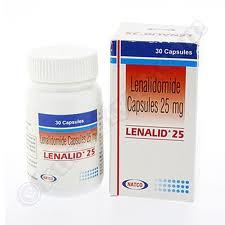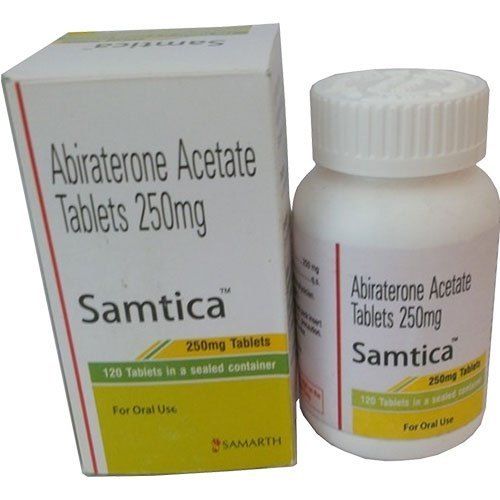
Lenalid Capsules 25 mg
Product Details:
- Fermentation Smell Normal Smell
- Storage Instructions Room temperature
- Shelf Life 12 Months
- Click to view more
Lenalid Capsules 25 mg Price And Quantity
- 7623.42 USD ($)/Piece
- 10.00 - 100.00 USD ($)/Piece
- 5000-10000 Piece
Lenalid Capsules 25 mg Product Specifications
- Room temperature
- 12 Months
- Normal Smell
Lenalid Capsules 25 mg Trade Information
- 10000 Piece Per Week
- 7-15 Days
- Australia Central America Asia North America South America Eastern Europe Western Europe Middle East Africa
- All India
Product Description
Lenalidomide inhibits the proliferation of aberrant cells and improves the immune system's response to cancer cells. It is specifically recommended for multiple myeloma patients who have received prior treatments as well as for people with MDS linked to a certain genetic mutation.
The dosage of the oral capsules is determined by the patient's health status and reaction to treatment. Lowered blood cell counts, diarrhoea, and weariness are typical adverse effects that may occur. Lenalid Capsules 25 mg have demonstrated notable success in treating various haematological problems, perhaps providing advantages and better results for people with these conditions. Individual responses to the medicine, however, may differ, necessitating constant medical supervision throughout the course of treatment.
Features of 25 mg Lenalid (Lenalidomide) Capsules:
1. Lenalidomide, an immunomodulatory drug well-known for its success in treating haematological problems, is the active ingredient in the capsules.
2. Treatment for haematological disorders: Multiple myeloma, myelodysplastic syndromes (MDS), and mantle cell lymphoma are the only haematological disorders for which lentilid 25 mg capsules are authorised.
3. Lenalidomide has an immunomodulatory effect by boosting the immune system's defences against cancer cells and altering the tumour microenvironment to make it less conducive to cancer growth.
4. Oral Administration: The capsules are consumed orally, making for a quick and painless way to deliver medication.
5. A personalised treatment method is used by prescribing and dosing the medication in accordance with each patient's unique medical condition and response to therapy.
Benefits of 25 mg Lenalid (Lenalidomide) Capsules:
1. Lenalidomide has shown notable efficacy in treating multiple myeloma, myelodysplastic syndromes, and mantle cell lymphoma, potentially providing benefits and better outcomes for patients with these particular haematological disorders.
2. Treatment for Multiple Myeloma: Lenalidomide is an alternate treatment option that is especially helpful for multiple myeloma patients who have had prior treatments or relapsed.
3. Therapeutic for MDS with a Specific Genetic aberration: Lenalidomide is an effective therapeutic option for some subtypes of myelodysplastic syndromes linked to a specific genetic aberration (deletion 5q).
4. Lenalidomide can often cause remission in multiple myeloma and MDS cases, which helps with disease management and improves quality of life.
5. Survival is Prolonged: Treatment with lenalidomide has been demonstrated to dramatically extend survival and enhance results in patients with multiple myeloma and MDS.
6. Lenalidomide may be used as maintenance therapy in some cases of haematological diseases to stop disease progression or relapse.
7. Lenalidomide's immunomodulatory effects may help alter the tumour microenvironment, making it less conducive to the growth and metastasis of cancer.
8. Lenalid 25 mg capsules are typically well accepted, with side effects that can be dealt with and are frequently surpassed by the therapeutic advantages.
Individual responses to Lenalid Capsules 25 mg (Lenalidomide) may differ; therefore, close medical supervision and monitoring are necessary to manage any potential adverse effects and maximise therapeutic results. Throughout the course of treatment, patients should speak with their medical specialists for personalised counsel and direction.

Price:
- 50
- 100
- 200
- 250
- 500
- 1000+

 English
English Spanish
Spanish French
French German
German Italian
Italian Chinese (Simplified)
Chinese (Simplified) Japanese
Japanese Korean
Korean Arabic
Arabic Portuguese
Portuguese





